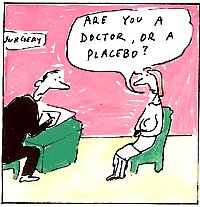
Joining patient and professional expertise together

Joining patient and professional expertise together

It may seem surprising that psychiatrists can be so oblivious to the need for shared decision making with patients. This is what a Taking Issue commentary in Psychiatric Services, a mainstream psychiatric journal, pointed out, again stating what should be obvious - "We must put the person back at the centre of person-centred care".
The commentary was based on research reporting the results of a survey of psychiatrists attending a congress in Germany. Only 51% said they regularly used shared decision making. Medical and legal decisions (for example, hospitalisation, prescription of antipsychotics, and diagnostic procedures) were considered less suitable for shared decision making than psychosocial matters (for example, work therapy, future housing, and psychotherapy). Shared decision making was seen as useful for well-informed and compliant patients and for those who currently dislike their antipsychotic, but it was not seen as useful in cases of potentially reduced decisional capacity.
Psychiatrists may not involve patients as much as they should in their care because they may be fearful they will not take their medications. However, in the same issue of Psychiatric Services, another article compares the results of the US General Social Surveys of 1998 and 2006 and finds that Americans’ opinions toward psychiatric medications have became more favourable over this time, and that people have become more willing to take these medications. 83.4% now think that medications help people to deal with day-to-day stresses, 75.9% think that medications make things easier in relation with family and friends and 68% think that medications help them to feel better about themselves.
Psychiatrists also may use the ‘chemical imbalance theory’, that mental illness is caused by an imbalance of chemicals in the brain, as a working hypothesis to persuade patients to take their medication. They do need to share the evidence for what is only a theory. What patients find difficult to appreciate is why they are told that this theory has been proven, when this is not the case. To quote again from the Taking Issue article, "Like fish unable to discover water, many psychiatrists struggle to recognise their own paternalism". We may all wish for a simple, quick, cheap, painless and complete cure, but the highest quality care can only result from a sharing of proper professional and patient expertise.